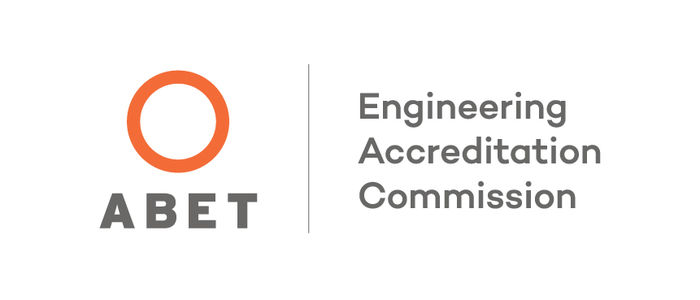The Bachelor of Science in Rail Transportation Engineering at Penn State Altoona is accredited by the Engineering Accreditation Commission of ABET, https://www.abet.org, under the commission’s General Criteria with no applicable program criteria.
Additional information is available on the Accreditation page of the ABET site.
Enrollment and Graduation Information
| Year | 2017 | 2018 | 2019 | 2020 | 2021 | 2022 |
|---|---|---|---|---|---|---|
| Enrollment | 14 | 14 | 15 | 15 | 17 | 18 |
| Year | 2016 | 2017 | 2018 | 2019 | 2020 | 2021 |
|---|---|---|---|---|---|---|
| Graduates | 4 | 6 | 5 | 5 | 9 | 7 |
Program Educational Objectives
Specific educational objectives of the program, which are measurable goals three to five years after graduation:
- Be employed by industry or government in the fields such as design, development, operation, control, troubleshooting and maintenance of elements of the railroad system and infrastructure.
- Assume an increasing level of responsibility and leadership within their respective organizations
- Communicate effectively and work collaboratively in multidisciplinary and multicultural work environments
- Recognize and understand global, environmental, social, and ethical contexts of their work
- Progress to an advanced degree, certificate programs, and professional engineering licensure, and be committed to lifelong learning to enhance their careers and provide flexibility in responding to changing social and technical environments.
Student Outcomes
Graduates of the Rail Transportation Engineering program shall be able to:
- an ability to identify, formulate, and solve complex engineering problems by applying principles of engineering, science, and mathematics.
- an ability to apply engineering design to produce solutions that meet specified needs with consideration of public health, safety, and welfare, as well as global, cultural, social, environmental, and economic factors.
- an ability to communicate effectively with a range of audiences.
- an ability to recognize ethical and professional responsibilities in engineering situations and make informed judgments, which must consider the impact of engineering solutions in global, economic, environmental, and societal contexts.
- an ability to function effectively on a team whose members together provide leadership, create a collaborative and inclusive environment, establish goals, plan tasks, and meet objectives.
- an ability to develop and conduct appropriate experimentation, analyze, and interpret data, and use engineering judgment to draw conclusions.
- an ability to acquire and apply new knowledge as needed, using appropriate learning strategies.
Student Outcomes Mapped to Program Courses
An ability to identify, formulate, and solve complex engineering problems by applying principles of engineering, science, and mathematics
- CE 310
- RTE 305
- CE 335
- CE 360
- RTE 402
- RTE 302
- CE 340
- RTE 403
An ability to apply engineering design to produce solutions that meet specified needs with consideration of public health, safety, and welfare, as well as global, cultural, social, environmental, and economic factors
- RTE 402
- RTE 302
- CE 333W
- CE 332
- RTE 406
An ability to communicate effectively with a range of audiences
- CE 310
- RTE 303
- CE 337
- CE 333W
- RTE 404
- RTE 406
An ability to recognize ethical and professional responsibilities in engineering situations and make informed judgments, which must consider the impact of engineering solutions in global, economic, environmental, and societal contexts
- RTE 301
- RTE 303
- RTE 402
- CE 333W
- CE 332
An ability to function effectively on a team whose members together provide leadership, create a collaborative and inclusive environment, establish goals, plan tasks, and meet objectives
- RTE 303
- CE 337
- CE 332
- RTE 404
- RTE 406
An ability to develop and conduct appropriate experimentation, analyze, and interpret data, and use engineering judgment to draw conclusions
- CE 310
- CE 336
- CE 337
- CE 332
- RTE 403
- RTE 404
An ability to acquire and apply new knowledge as needed, using appropriate learning strategies
- CE 310
- RTE 303
- RTE 302
- CE 333W
- CE 332
- RTE 403
- RTE 404



